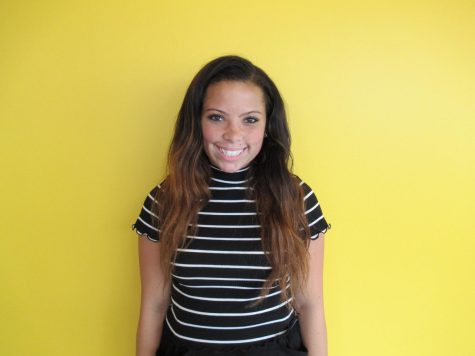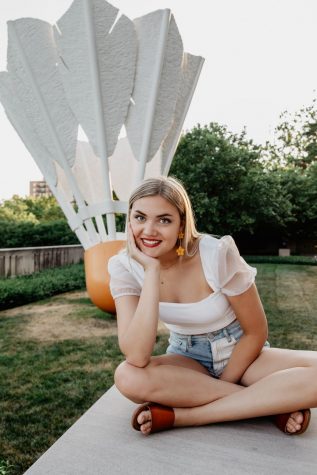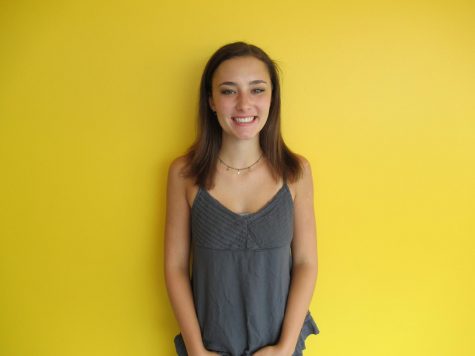Overcoming Tragedy
teachers, students share how they’ve moved beyond hardships within community

Impact on the student body
The loss of Blue Valley student Reat Underwood in 2014 affected the community as a whole.
Underwood was a freshman when he lost his life along with his grandfather, William Corporon and fellow bystander Terri LaManno in the hate-motivated shooting at the Jewish Community Center of Greater Kansas City and Village Shalom, a Jewish retirement community.
Choir teacher Marsha Moeller advised Underwood as a choir student and said events that occurred prior to the shooting such as 9/11, the Columbine school shooting and previous student deaths all contributed to the solemn atmosphere at BV during that time.
“There was a year-and-a-half period where we lost three or four kids to car accidents,” Moeller said. “Three girls were on their way to softball practice. They were in a convertible trying to change clothes, and they crashed on Metcalf when it was a two-lane road. Those deaths [really impacted the community].”
After Underwood’s death, grief immediately devastated many people throughout the area, but it also brought them together for a common cause. The musical society in particular was deeply incited because of Underwood’s passion for singing.
“At contest that year, I said it did not matter if we stopped in the middle of a song — the rating meant nothing because we had just lost a life,” Moeller said. “The competition judges [understood, and] wrote little things like ‘So sorry for your loss.’ Schools from everywhere were sending us stuff — music departments — and those were just the standouts.”
Despite tragically losing his life at such a young age, Underwood’s legacy is carried on through community support of the SevenDays foundation, which was created by his mother, Mindy Corporon, in his honor. A theater award at BV is also named after him.
Underwood shows one can leave an impact on the world despite their time being cut short.
Coming Together
On the day of coach Paul Brown’s son’s 18th birthday, Brown received a phone call that his son was part of a bad car wreck several hours from him in Colorado. The doctors thought he only had a bad concussion but were airlifting him to a different hospital to do extra testing.
A few hours later, Brown got a phone call from a nurse at the new hospital — he was told that his son was rushed into emergency brain surgery.
“You re-prioritize the really important things that are deeply rooted in you after something like that happens,” Brown said.
Brown has learned to be more empathic and learn other people’s story. He points out that people are pretty insensitive to what’s going on or they don’t understand the situation. He emphasizes the importance of kindness and love in a world of selfishness.
“Sometimes you need a clergy member [and] sometimes you need a close friend just to be there not even to say things but just to know that they’re there to help you,” Brown said. “People need to reach out when they get in those moments.”
Like Brown, you never know when tragedy might strike, so while you have the chance, enjoy all you have.
Personal Recovery
Imagine your first year of high school, the period of time that you figure yourself out and explore new experiences, being the year you hit your head on the bottom of a pool and break your neck causing you to drown. This happened to senior Nigel Charlson and shaped him as a person and how he views things.
“It was Dec. 18 2015, and somebody who’s now graduated Harley Thursby, and I were swimming and we were practicing race starts,” Charlson said. “I don’t know if it was a bad dive or if I slipped or what, but I hit my head on the bottom of the pool and broke my neck and drowned to death. My heart stopped, entire left lung was full of pool water and was resuscitated. I stayed in the ICU for Christmas for two weeks and then moved to Denver for physical rehab ambition.”
Although the accident was hard, it also taught Charlson a lot about how everything works.
“It would be very naive to think that BVHS alone is better at coping with things,” he said. “If you meet and relate with other people, even if you can’t understand or personally relate to what they’re going through, but wrap your head around the messed up concepts and process it for yourself. I think it kind of shows you how other people deal with pain and tragedy in a different way.”
Charlson said he was in a different wheelchair for the first year and a half, a power wheelchair.
“I started working out two summers ago,” he said. “So I’ve been in this one to keep up during the year because I don’t have a lot of time.”
Charlson said many people at this school don’t understand his condition.
“I can feel and move my legs to an extent, but I can feel it everywhere,” Charlson said. “I can move my legs to an extent and my hands and stuff.
Charlson said he’s often asked sensitive questions because they are misinformed.
“I get the question, ‘Well, why can’t you walk?” Charlson said. “I understand that not everybody knows how spinal cord injury works. I’m not upset about that, but it’s more [of the] stupid things that people say [that are frustrating.]”
Charlson although every student doesn’t understand his situation, he is glad they try their best to be helpful.
“My friends are more than willing and most people here are more than willing to open a door if you need help,” Charlson said. “I think that goes for literally anybody. I mean, they’re accommodating is what I’m saying — not necessarily understanding but accommodating.”
Having motivation to finish high school can be difficult to manage, and senior Colin Wood not only has to deal with the normal pressures of high school but he also is experiencing the loss of his mother, Melissa Wood, who was battling ovarian cancer.
Colin’s mother passed away on Sept. 3, 2019, the first week of the football season.
“It affected my life because now, my dad has to play both roles, Mom and Dad — and she wasn’t just a mom, she was a really, really successful business woman,” he said. “So I lost that figure to look up to because I want to go into business. Losing all of the knowledge she had really, really sucks.”
Colin has dealt with the tragedy by surrounding himself with supportive friends and family, and football.
“It’s way bigger than football to me — that’s how I’ve been able to get through,” he said. “I hope the guys know that, but I think the reason why I’m as mentally healthy and OK as I am was because of football.”

Shay Lawson is a co-editor in chief for the Tiger Print. She is a senior at BVHS and is the captain of the varsity cheerleading squad, an executive tiger...

Erika Kolseth is a senior, and this is her third year on the newspaper staff. She loves thrift shopping, writing music, playing piano and guitar, and...

Aubrey Herrin is a junior staff writer for the Tiger Print. She plays soccer and is a track athlete at BV. She also is a tiger mentor and member of Kay...



